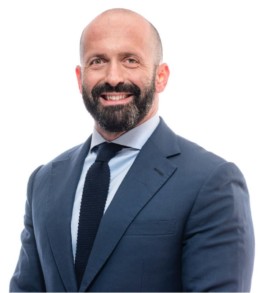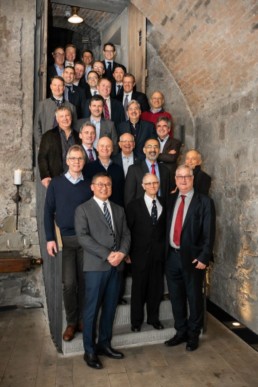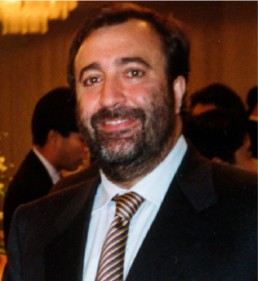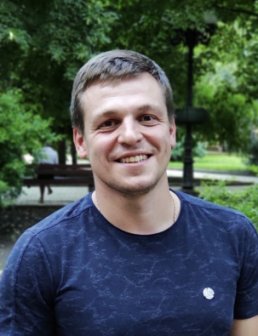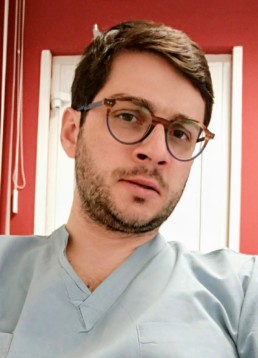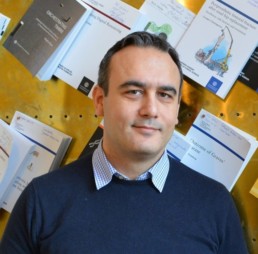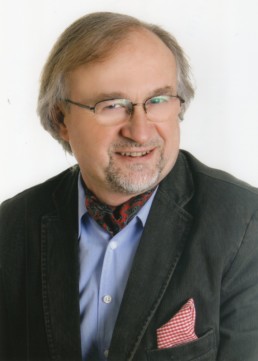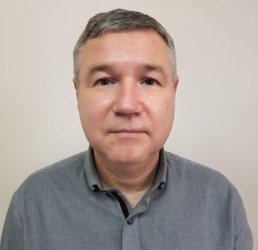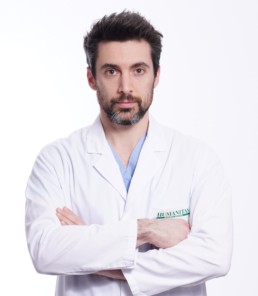Dear EHS Members & Friends, 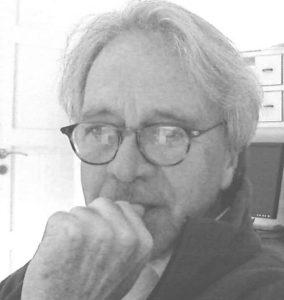
When will the COVID-19 nightmare end? … Alas, no one has the answer to this frightening question … We have again and again to deplore this terrible plague of health, with its procession of hospitalized patients, its deaths and its uncertainties as far as our health is concerned …
And behind the health crisis looms the economic crisis, with for the moment our surgical exercises completely broken down, and tomorrow the bankruptcies of companies, at the same time as the dramatic situation of companies distributing implants which cannot provide prostheses which are no longer required by surgeons…
As with all events, and in particular scientific congresses, we had to reschedule the 14 th Lille EHS congress for next year in September 2021, hoping by then that the health crisis will have allowed us a return to substantially normal surgical and scientific activities? …
Dear friends and colleagues, dear members of our EHS Society, our wishes today as yesterday go above all to those whom the Covid-19 affected, their loved ones, their working relationships … Against all odds this crisis however has demonstrated the incredible tenacity of our caregivers, their ability to overcome the impossible.
Kudos to them, kudos to all of us within our Orthopedic Community… Our major and primordial interest is not only of course only fitting prostheses… we are there above all to care for patients who need us, now for vital emergencies, tomorrow to recover thanks to our surgical expertise the ability to find an excellent recovery of all their activities.
Of course, after such a health crisis of unprecedented scale, followed by a major economic crisis, the scientific congresses of tomorrow will probably never be the ones we have known, we will no doubt have to find other ways … But we will relive again the happiness of giving back the best quality of life for our patients, we will be able to rediscover the joy of sharing our experiences, our surgical expertise, during our next meetings, and quite naturally next September for our LILLE 2021 congress… we will then be stronger after such terrible trials.
This is the motto of our champions during the Olympic Games, we must make it our own in these difficult times: “Citius, Altius, Fortius” … faster, higher, stronger! …
Kindest regards on behalf of the entire EHS Board
Jean-Alain Epinette, MD
EHS President
Letter from the Secretary General, Professor Eleftherios Tsiridis
 Dear Members,
Dear Members,
We are dedicating a newpage to the EHS website for articles written by our members on Covid-19 and it’s effects on our orthopaedic community. There will be four sections:-
1) Papers written by EHS members on Covid-19
2) Presentations by Nat Reps and Ambassadors about Covid-19 in their countries
3) Selection of papers from international literature on Covid-19 and orthopaedics
4) Presentation of the infection update of EHS member countries from the Johns Hopskins reseource centre
We look forward to your contributions. This month we feature Prof Thaler’s report on the EHS Survey, plus news from EHS EduCom member Prof Hart (UK) on Why Surgeons don’t want to operate right now, and recommended personal protective equipment for the orthopaedic and trauma surgeon, as well as EFORT’s Key Recommendations of Covid-19 Best Practices. Also in line with this unavoidable theme, Prof Thoman Ilchmann is our Ambassador of the Month and reports on his experience of Covid-19 in Switzerland, below. Thank you very much. GO TO THE PAGE here or use the clickable link from our homepage.
Also from Switzerland and from life before the pandemic, see the report from Prof Siebenrock on his Hip Symposium Bern 2020.
Thanks to all applications to the EHS Visiting Fellowship 2020. The EHS EduCom is now judging the CVs.
Finally, we are delighted to welcome several new Full Members to EHS this month: Our first member from FYROM, Dr Darko Talevski. From Italy, Prof Fabio Catani and (moving up from Young to Full Member) Ass Prof Mattia Loppini. From Sweden, Dr Georgios Chatziagorou. From Ukraine, Dr Taras Rogovyi, Dr Alexander Yagelskiy and Dr Igor Zazirnyi. From UK, Mr Panagiotis Gikas.
Best wishes,
EHS Secretary General, Professor Eleftherios Tsiridis
EHS Ambassador of the Month, Thomas Ilchmann

It is a pleasure for me to have become an Ambassador for the European Hip Society. In this singular time, I want to share some personal impressions about how my professional life as a hip surgeon in Switzerland has currently changed.
The southern part of Switzerland borders upon Italy with the region Lombardy, the first Covid-19 hotspot in Europe. The region of Basel, where I work, borders upon Alsace, what was heavily affected too. Ten thousands of commuters cross the Swiss borders daily from these regions, many of them working in health-care (e.g. 40% of all nurses in Canton Ticino). This is one reason for big regional differences in the incidence of infections even in our small country and in some areas like ours, the infection rate is rather high.
I am working at a private hospital specialized mainly on elective orthopaedic operations. The first infection with Covid-19 of an employee appeared on the 12th March. At that time Swiss authorities developed the regulations for the expected pandemic and from the 16th March on there was a national lock-down.
Elective surgery was stopped but urgent operations permitted. We created a board for patient selection and very few patients with unsupportable problems were operated, about 5% of the usual volume.
A collaboration between public and private hospitals was started. Nurses and doctors from our clinic were instructed to work at the uniquely designated Covid-hospital in the region. Additionally, respirators and other equipment were lent. There were sufficient resources and even a few patients from Alsace could be taken.
Our region was highly affected but now the infection rates are low. At the end of April the beginning of elective surgery was permitted under strict requirements and till the middle of May almost full operative capacity should be achieved.
At the hospital, in the cantons, and on a national level there is a lot of debate whether all these arrangements were adequate, too early or too late, and how to proceed. Besides employees with risk factors, most people are willing to work but all seem somehow paralyzed. There is a considerable unsureness for the patients too. Some feel that the pandemic is over because more activities are permitted, others are scared and do not consult a doctor even with life-threatening medical problems.
Switzerland has a direct democracy and strong regional governments (cantons), we have four languages contributing to big cultural differences. Being somehow like a “Little Europe” we have a good understanding for the differences in handling the pandemic all over Europe. Probably a strong central government would have had some advantages in such a crisis. We are glad to have a solid and well-equipped healthcare system which not came on the limits of its capacities.
It is a big disgrace that all our scientific conferences had to be cancelled or postponed. We all become better in arranging video-conferences, webinars are started and we get used to those means of communication and teaching. However, this cannot replace the face to face discussions, the social frame around the meetings and the opportunities to get a personal impression of the host-cities.
I am looking forward to the next meeting in Lille 2021 and I am convinced that it will be an even greater success as, by then, we are all even more longing for it.
So far let us hope that the predicted second wave will be very weak.
Take care and all the best,
Thomas Ilchmann, Prof Dr PhD
Consultant Hirslanden Klinik Birshof, ENDO-Team, Münchenstein, Switzerland
University of Basel


